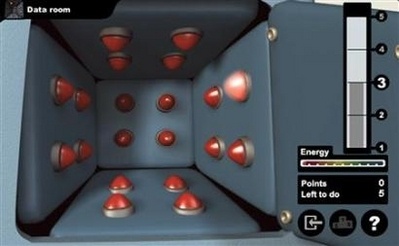Brain fitness seen as hot industry of the future
(Agencies)
Updated: 2008-03-13 10:52
Updated: 2008-03-13 10:52
BOSTON -- When her son Alex was diagnosed with attention deficit hyperactivity disorder at the age of 10, Karen George was reluctant to put him on medication.
Instead, she enrolled him in a clinical trial designed to test the efficacy of a brain stimulation program made by Cogmed, a private company that uses computer programs to exercise parts of the brain responsible for short-term memory.
|
|
The five-week program required Alex to spend up to an hour a day on a computer, pitting his wits against a robot. Among other exercises, the robot blinked out sequences of flashing lights that Alex was required to replicate.
The program made a dramatic difference in Alex's ability to concentrate, remember and act on daily chores, his mother says.
"I noticed it immediately," said George, 47, who lives with her physician husband in Santa Rosa Valley, California. "The program was like a game and my son was loving it."
Cogmed is part of an emerging brain fitness software industry that could expand rapidly as aging baby boomers seek ways to stave off dementia and Alzheimer's disease.
The size of the US market for brain stimulation products -- which can range from games such as Nintendo Co Ltd's Brain Age to programs backed by research showing they can improve memory or other cognitive functions -- more than doubled between 2005 and 2007 to $225 million, according to a new report by the consulting group SharpBrains.
Just as baby boomers' desire to delay cardiovascular and other diseases fueled the health club boom, their desire to delay dementia is expected to keep the market for brain stimulation products growing.
Even health insurers are getting in on the act. Humana, for example, has teamed up with Posit Science, which makes programs to enhance learning and memory, to offer brain fitness programs to certain Medicare members at a discounted price.
The industry is so young, however, that it is unclear which business model will be most successful over time: companies like Nintendo that develop games that are fun but have no proven clinical benefit, or those such as privately held NovaVision Inc, whose product has been cleared by the US Food and Drug Administration to improve vision in patients recovering from stroke or traumatic brain injury.
Jonas Jendi, chief executive of Cogmed, says games without clinical data will never be successful in the long run.
"I think it will be very difficult to make money in the field of games, even though I think a lot of people will try," he said. "Our approach is to prove our product works through proper research."
|
|
|
||
|
||
|
|
|
|


